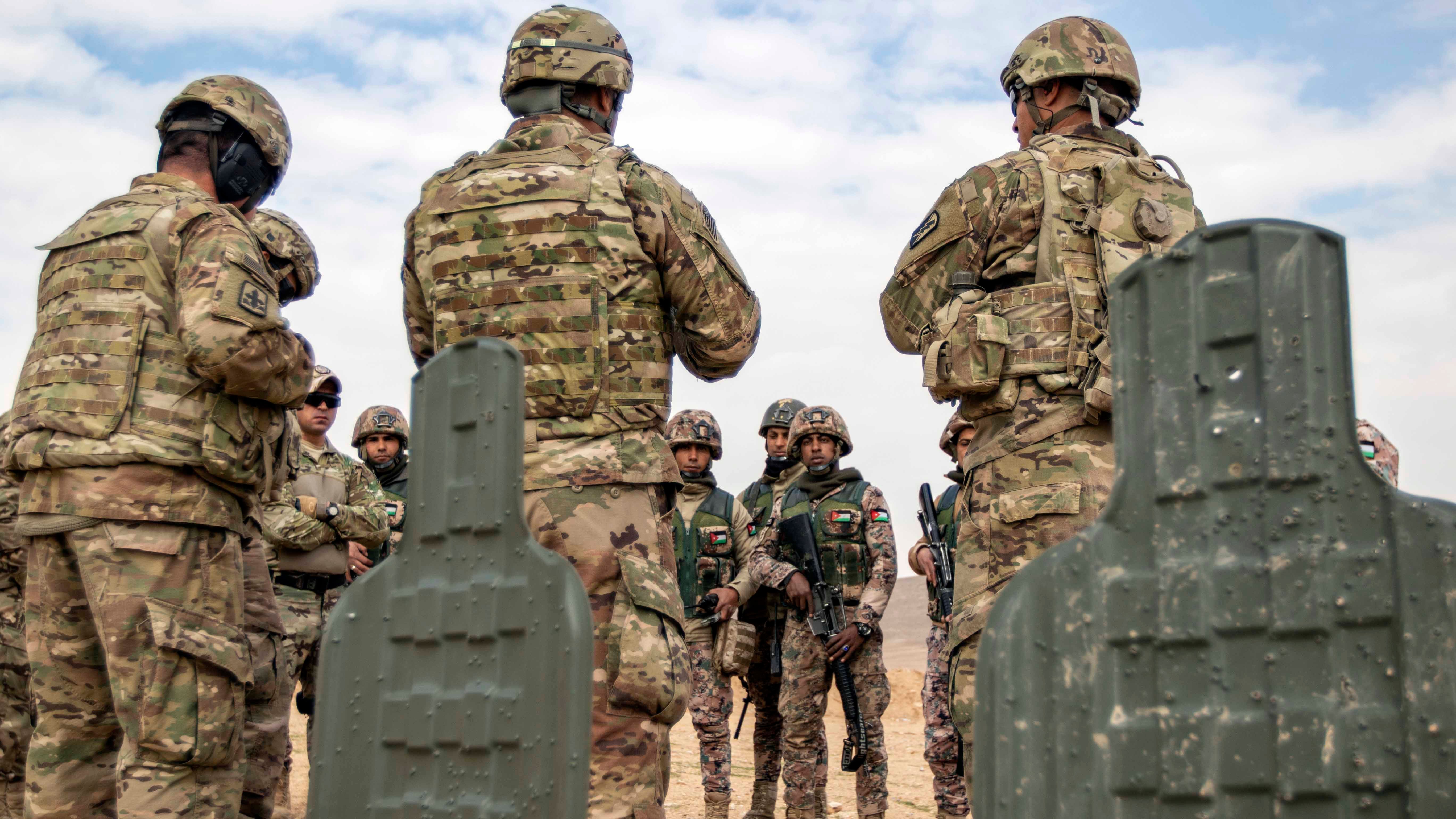Partnerships, Training Key to ARCENT Mission Success
Partnerships, Training Key to ARCENT Mission Success

Close contact with allies and partners, combined with solid training and education, are the cornerstones to successful missions for the soldiers and leaders of U.S. Army Central, the command’s leader said.
In remarks April 20 during a webinar hosted by the Association of the U.S. Army, Lt. Gen. Ronald Clark said that a “great working knowledge” of Army Central’s area of operations, after more than 20 years of forming regional alliances, has allowed soldiers more opportunities to expand relationships and solidify the shared mission of deterring malign actors.
Ongoing missions such as Operations Inherent Resolve and Spartan Shield have strengthened Army Central’s focus on countering violent extremist activity and strategic competition.
The ability to “build alliances and partnerships gives us an enduring advantage. … That’s really the change since I’ve been ARCENT commander, it’s the amount of time we’ve spent eyeball to eyeball with our partners and allies in the region,” said Clark, who has led the command since August.
He noted that 14 of the 18 chiefs of defense among partners and allies in the region are army officers, which further strengthens Army Central’s posture as the land component command of U.S. Central Command, whose region stretches from Northeast Africa and across the Middle East to Central and South Asia.
Headquartered at Shaw Air Force Base in South Carolina, Army Central has forward headquarters in Kuwait and has been resident in the Middle East for more than 20 years.
Meeting the mission overseas, Clark noted, begins with the training soldiers get before they deploy. In Army Central, he said, soldiers and leaders are afforded additional opportunities for leader development and education programs.
“We focus on leader development in three swim lanes,” he said, citing the training that takes place before soldiers arrive, the continuing education that helps expand their understanding of how to thrive in complex environments, and leveraging the experience they gain on the ground.
“One of the things we’ve focused on in how to be a better leader is how to have tough conversations about the myriad things that are in play, not just in the Army, but in society, as we try to get to understand each other better, especially post-COVID where people just haven’t been in contact with each other physically,” Clark said during the webinar, which was part of AUSA’s Noon Report series.
Clark also noted the importance of leadership development in the NCO corps and highlighted a “strong sergeants” initiative begun by Army Central’s top enlisted leader, Command Sgt. Maj. Jacinto Garza.
“The mantra is from command sergeant major down to [sergeant]. We build strong sergeants, strong sergeants build strong soldiers, and those soldiers are from general officer to brand new trainees in the Army,” Clark said. “Strong soldiers are what comprise our squads, and our squads win our wars.”

